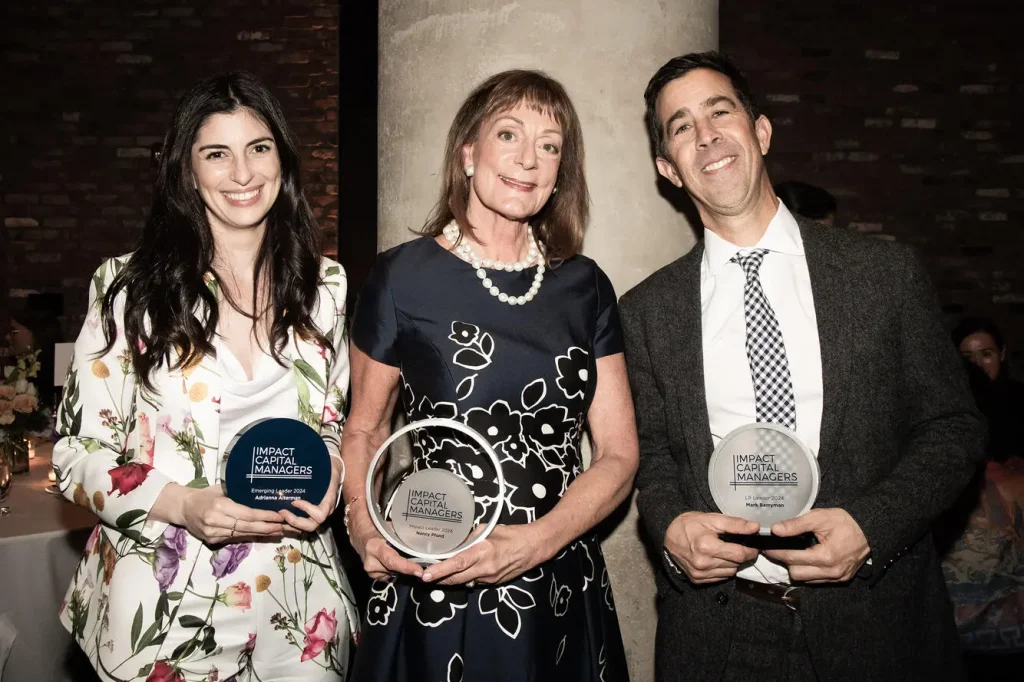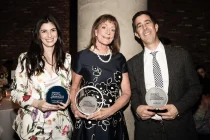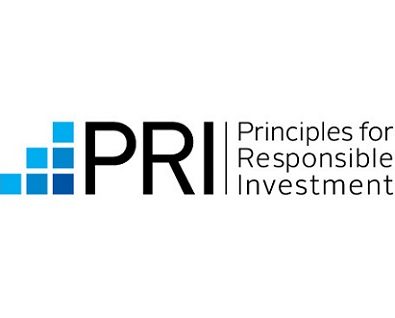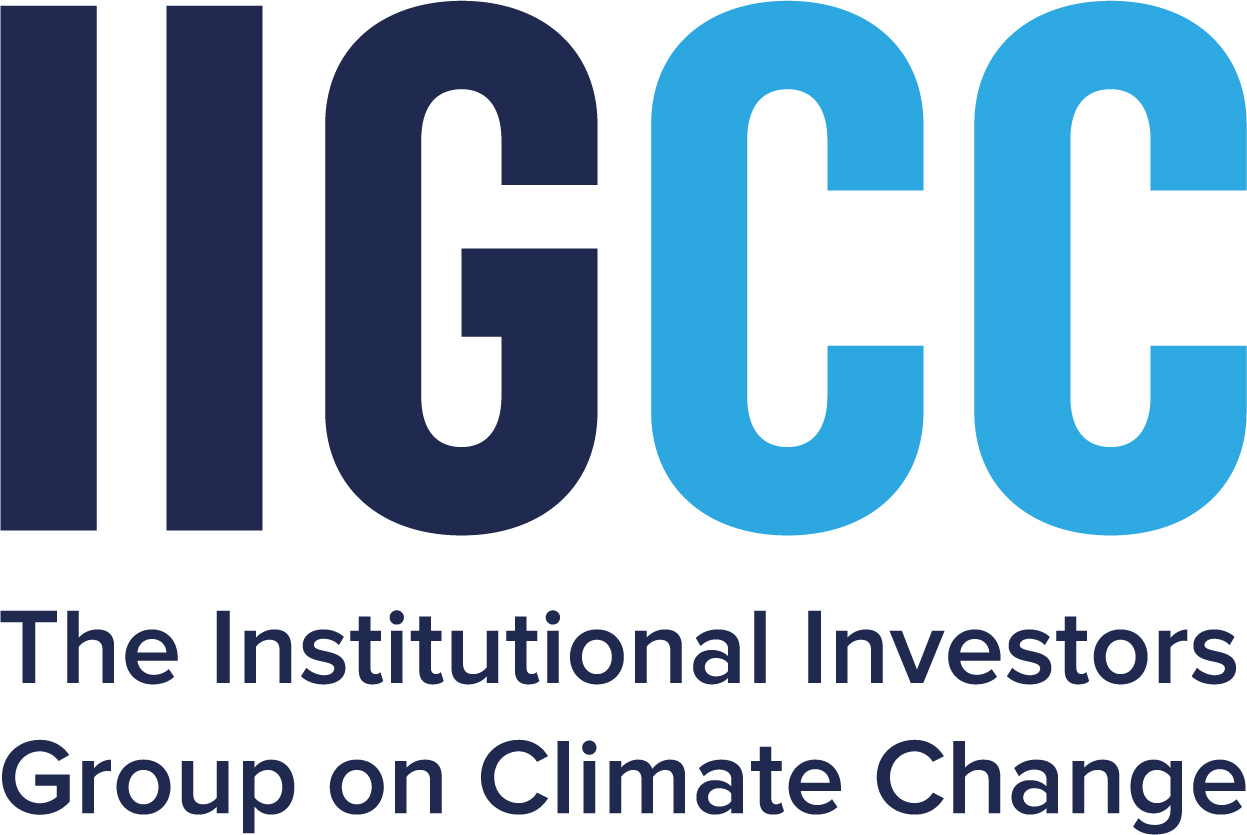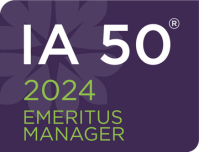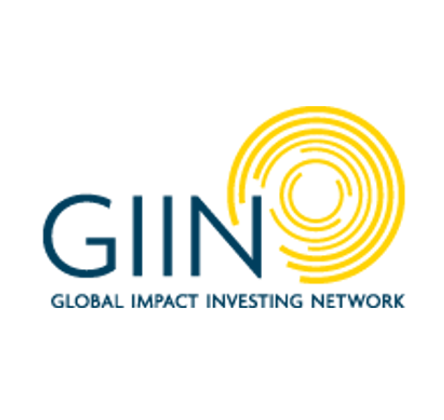Thank you so much, this is such a special honor. The ICM community and mission are at the core of what DBL is all about, and so being here, it really feels like we are one big family!
Tonight, I want to share a few brief perspectives on our impact investing journey. But first, I would like to acknowledge and thank several people in this room. First of all, congrats to my fellow honorees, Mark and Adrianna. Glad to see the Bay Area Salesforce team here in full force! And a big thanks to David Kirkpatrick—a fellow impact pioneer –for his very kind introduction. To Marieke, Garrett, Diane, Ravteg, Eliya and Michaela from ICM, massive thanks for your leadership and efforts to organize this inspiring evening. And to my colleagues on the ICM board, kudos for all the work you do on behalf of our membership, and kudos to the amazing members here tonight who make impact happen!
On a personal level, there were three groups who were pivotal to creating our first double bottom line venture fund, and two of them are here tonight: I’d like to recognize and applaud them for taking what was then, a huge risk: JP Morgan, and The Ford Foundation. Thank you for being here. I truly believe that many of us, myself included, would not be here tonight without your early leadership. The third group, by the way, is the Bay Area Council, a regional business association that has been around since 1945. They are not here tonight, but still going strong! I also want to thank our other LPs in the audience: Goldman Sachs, Grosvenor, and CalPERS for their support! We all know how important strong legal advice is to a venture firm and I would like to thank David Selden and Katlyn Kimber from Cooley for attending, I very much appreciate the long-time support of DBL from Cooley’s West coast team members, led by John Dado. I would also like to give a shout out to Peter Davidson from Aligned Climate Capital and thank him for his generous donation of a slice of his carried interest to ICM. Yay! We did this in our first fund and it created a meaningful boost to the budgets of the not-for-profits involved. Also, a big shout out to Maya Chorengal at TPG and Jessica Matthews at JP Morgan both awesome impact pioneers in our midst.
Next, I would like to thank my guests tonight—my DBL colleague, Jake Harris, Meade Harris—no relation!—the CEO of Dynamo Energy and the Hawthorn Club, Fran Seegull, another pioneer in impact, now leading the U.S. Impact Investing Alliance, Professor Shawn Cole from Harvard Business School, one of our most long-standing and effective academic partners, and climate investors and entrepreneurs Stephan Feilhauer, Dave Wasserstein, and Carine Dumit. Finally, to all of you who have recently raised a fund in this difficult climate, especially a first time fund, we appreciate you, we congratulate you, and we definitely feel what you went through to get here!
At DBL, we are celebrating our 20th year this year! If you had told us then, that in 2024 we would be celebrating with 150 like-minded investors in an organization that collectively represents over $100 billion in assets under management, we would have laughed uncontrollably. The reason for this is that in those early days, we routinely thought our portfolio companies would not succeed and that we would fail as a result. There was no community to support us, no roadmap, and not only no interest in what most of our companies were doing, but there was active disdain for things like solar panels, electric cars, and internet music. Of course, the story ended happily, and we went on to raise larger funds and become part of a burgeoning impact investing industry, but those memories will never fade away.
I say this tonight because, in some ways, we’re in a Deja Vu moment. We’re all backing inspiring entrepreneurs aimed at creating impact at scale, and yet the headwinds around us can be dizzying. If it isn’t a proposed law in New Hampshire threatening to make it a felony to invest state funds using ESG criteria (Meade – you live in New Hampshire, so we’re counting on you to please fix this!), then, it’s the threat of rolling back the IRA and undermining the most important climate investment in our country’s history. And where just a few years ago, public markets welcomed earlier stage climate and impact IPO’s, today, investors want fully baked stories, with revenue and profits to match. In fact, —and this is a bit sobering —if Tesla were trying to go public today, it may not have been able to: remember, in 2010, the year of the Tesla IPO, there was no Model S, let alone a Model 3, and gigafactories were still at the dream stage. Revenues were $93M and nearly 10% percent of this revenue was largely policy-driven zero-emission-vehicle (ZEV) credits. And, there was a net loss of $154M. Profits would not come for another TEN years. Without the public markets being willing to take investment risk on Tesla, who knows, would we have the electric vehicle market we have today?
I mention this not to freak people out, but rather to say that what we did then to get to a better place, we can and must continue to do today.
In a nutshell, here are three areas I’d like to suggest we pay particular attention to going forward:
- As I just mentioned in my story about the early Tesla days, policy matters. Between ZEV credits, incentives for plants in Fremont and Nevada, the DOE loan, and solar net energy metering rules, which played a big role in early solar growth, including for SolarCity, which Tesla would go on to acquire – Policy Mattered! Helping to make this policy happen took a huge amount of DBL’s time and effort.
- Think of policymakers as one of your key stakeholders: respect their mandate, and they will respect yours. In fact, if you uncover an under- innovated field and get buy-in from policymakers, you can gain a competitive advantage. Just a few weeks ago, a few days before Christmas – (in fact I remember thinking I should have been home wrapping presents) — Jake and I, instead, traveled through a torrential thunderstorm to Sacramento for a meeting with the head of California’s Natural Resources Agency, Wade Crowfoot, the head of Cal Fire, Joe Tyler and Gayle Miller, the head of finance in the Governor’s climate office, to enlist their support for a brand new, 21st century approach to fighting catastrophic wildfire. Also at the meeting was the CEO of Rain, one of our young but ambitious companies that is developing the software layers to integrate with cameras, sensors, weather and GPS feeds, and the like, combine all that with precision fire retardant application, to create autonomous aircraft that are stationed remotely in the woods to get to wildfires before they get out of control. These systems can also be used to help firefighters do their critical work with increased safety. The journey to Cal Fire and the Governor’s office—without whose support no change would occur– started with the recognition that wildfire suppression was not just an adaptation and resilience strategy that also helped enable ‘good’ fire, like prescribed burns, but was also a carbon emission In fact, the carbon emissions from the wildfires in Canada last year were six times greater than the emissions of the entire state of California — and this emissions trend is getting worse, not better. In fact, if wildfires were a country, they would rank 4th in emissions behind China, the US and India. We need new, tech driven approaches…the days of Smokey the Bear as a wildfire icon are over. At DBL, we are known for investing in under-innovated fields, and when I look at the areas we are investing in today: like wildfires, and natural climate solutions, building decarbonization, energy transition, and even homelessness – which is a category most venture capital investors would not touch with a ten foot pole – in all these areas, working with policymakers is the name of the game.
Finally, don’t forget the role of incumbents in policy, innovation, industry formation and everything else. Think of it as a marathon and a chess game at the same time: you’ve got to have staying power and you need to assess strategically why incumbents are reacting the way they are. When we first started, I was furious because I thought incumbents were standing in the way of progress. Then I noticed that no matter what the sector, incumbent reactions were usually the same: first they ignore you, then they laugh at you, then they try to squash you, and finally they join you! So the trick is not to take it personally, but to realize that this is just the way it is. They are certainly not haters of the haters gotta hate variety… they are incumbents, and incumbents gotta encumber, at least at first!
Of course, as impact investors, we are expected to change the world for the better, while excelling at all the traditional tasks of a VC at the same time. For this, I recommend the old saying, ‘don’t let the perfect be the enemy of the good’. Do the best that you can and know that you are getting better with each deal that you do and with each fund that you raise. And now, with an organization like Impact Capital Managers, you’ve got 116 members that have your back! Let’s rely on one another to build a community of purpose.
Thank you so much for this honor. Remember, we really are just getting started!

